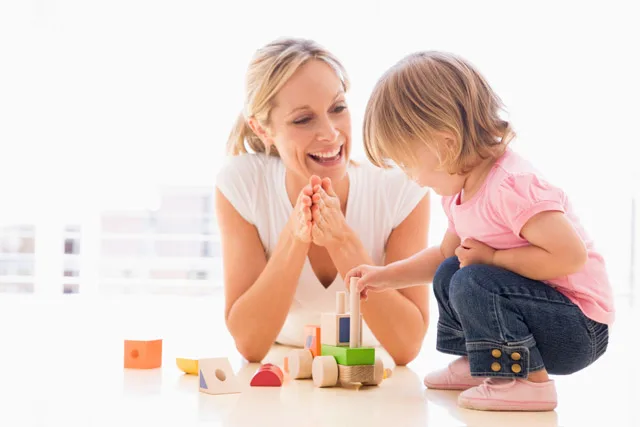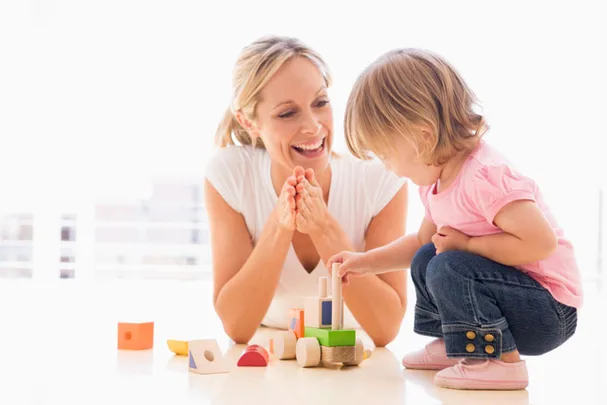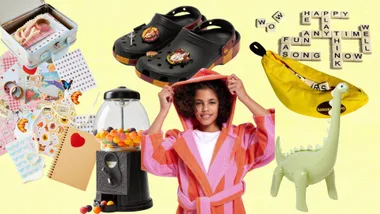
You can’t beat a healthy dose of praise when it comes to making your kids feel good. It’s a powerful form of encouragement that can boost self-esteem and help them learn what’s right and wrong.
It can also increase confidence levels and make them more inclined to tackle challenges. Or can it? While researchers have found that praising your kids can have very positive effects – for example one study reported that parents who praise preschoolers for their manners have children with better social skills – there can be downsides.
There is a right and a wrong way to compliment your kids, according to experts who have been studying the effects of praise for decades. According to research carried
out by the New York University Child Study Centre, general praise like, “You’re such a good girl,” can end up being meaningless. So is over-praise, especially when they haven’t really done anything to deserve it. Children aren’t stupid – by around the age of seven they can distinguish between general and specific praise and also know when they haven’t earned compliments.
To make praise meaningful, you should be specific about what it is they’ve done. Instead of “Good girl,” say, “Well done for waiting patiently for me.” Rather than simply telling them their artwork is good, say you like the way they’ve made the clouds look fluffy, or you love the colours they’ve used.
To be more effective, praise should be given for effort rather than results, say the experts. For example, if your child gets an A on a test, don’t just say, “You’re so clever”. Tell them, “Well done for studying hard”. Praising behaviours such as working hard or sharing is effective because these are things over which they have
control, and can keep doing once they know they are deserving of praise.
Commending them on the effort they put in will increase self-confidence.
However, research shows that children who are constantly praised just for being smart tend to avoid challenges because they are worried they might not achieve the standards you’ve set, even if they try hard.
Research carried out at Utrecht University in the Netherlands backs up the idea that congratulating children on qualities such as being clever can send a message they are only valued when they succeed.
Studies there have found that if children who are constantly praised for being smart then fail at something, it can make them feel unworthy and ashamed, rather than accepting that they just didn’t do as well as they wanted to.
Children praised for their efforts may not associate their self-worth with success, so
failure is viewed as a temporary setback or a lack of effort rather than a flaw in their character.
In his book The Examined Life, psychoanalyst Stephen Grosz takes the theory one step further, saying, “Empty praise is as bad as thoughtless criticism
– it expresses indifference to the child’s feelings and thoughts.”
WHAT SHOULD PARENTS SAY TO COMPLIMENT THEIR CHILDREN?
Psychologists Jennifer Henderlong Corpus and Mark Lepper, who have analysed
over 30 years of studies into the effects of praise, offer the following guidelines:
• Be sincere and specific. Kids might think you feel sorry for them or are being manipulative if you’re not thoughtful in your feedback.
• Praise them for traits they have the power to change. Complimenting children
for their ability makes them cautious – they don’t want to screw up and lose your
acclaim. Praise them for things such as the amount of effort they put in.
• Use descriptive praise that conveys realistic, attainable standards. Detailed feedback will let your child know what is expected of them.
• Be wary of over-praising for things that come easily. If they’ve done something
without difficulty, your words will be meaningless. If you compliment them when they do something they love, they may expect automatic praise and might not try as hard.
• Avoid praise that compares to others. It can make them sore losers, and teaches
them it’s better to outperform someone else rather than learn to master an activity.

AGE DOES MATTER
Babies and toddlers benefit from praise that encourages them to try new things –
studies have shown that mums who compliment toddlers while they’re exploring or trying a new challenge have kids who are more likely to tackle difficult tasks and persevere with them. But older kids can become wary of your motives for praising them, and may feel that you’re going over the top because they are not good enough.











